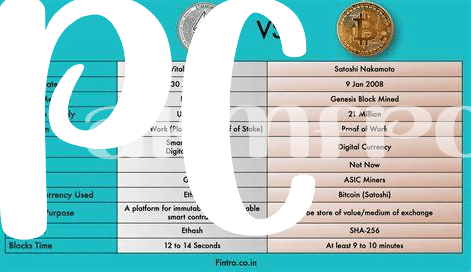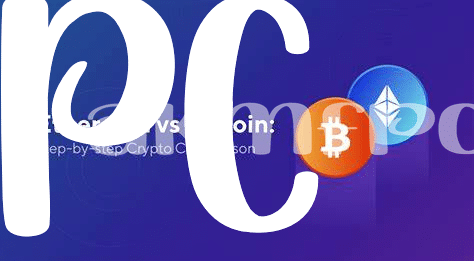🌍 a World of Good: Introduction to Blockchain Philanthropy

Imagine a world where helping others is just a click away, and your goodwill travels across the globe in the blink of an eye. That’s the promise of using blockchain, a technology you might know from digital “coins” like Bitcoin, in philanthropy. It’s like a digital ledger that’s very secure and transparent, meaning you can see exactly where your aid goes, almost like tracking a package. With blockchain, every donation is recorded in a way that anyone can check, ensuring that help reaches its intended destination without any detour. This approach is revolutionizing how we think about supporting good causes, making it easier and safer for everyone to contribute to a better world. Here’s how it is making a difference:
| Benefit | Explanation |
|---|---|
| Transparency | Every transaction is recorded and can be seen by anyone, so you know exactly where your donation is going. |
| Efficiency | Donations can be made instantly and directly, reducing the need for intermediaries and cutting down on delays and extra costs. |
| Accessibility | Blockchain makes it easier for anyone with internet access to contribute to philanthropy, breaking down geographical barriers. |
This technology is not just a tool but a bridge, connecting hearts and extending hands globally, ensuring that aid isn’t just a drop in the ocean but a wave of change for the better.
💰 Bitcoin for Charitable Giving: Success Stories
Bitcoin has become a powerful tool for giving back to society, proving that digital currencies can do much more than just transactions. One inspiring example includes a famous online platform that started accepting Bitcoin donations, leading to millions of dollars in contributions. These donations have funded life-changing projects around the world, from building schools in underprivileged areas to providing clean drinking water to communities in need. The beauty of using Bitcoin for charitable giving lies in its transparency and efficiency. Donors can see exactly where their money is going, ensuring that every penny contributes to making a positive impact.
Moreover, Bitcoin has opened new avenues for donors who prefer to remain anonymous but still want to support their favorite causes. This aspect of privacy, combined with the low transaction fees compared to traditional banking systems, makes Bitcoin an attractive option for both donors and nonprofit organizations. To better understand the differences in how Bitcoin and Ethereum can be utilized for small payments and donations, exploring resources such as https://wikicrypto.news/ethereum-vs-bitcoin-best-small-payment-solutions-compared can offer valuable insights. Through these success stories, it’s evident that Bitcoin isn’t just about investment; it’s a means of spreading kindness and support across the globe.
🤝 Ethereum’s Unique Approach to Helping Causes

Ethereum, unlike its cousin Bitcoin, introduces a novel twist in supporting charitable causes. At its core, Ethereum is not just about sending or receiving digital money. It’s like a global computer that enables developers to build their own “smart contracts”—think of these as self-operating computer programs that automatically execute when specific conditions are met. This functionality opens up innovative ways to support nonprofits and social initiatives. Imagine a charity project that can automatically receive funds as soon as a fundraising goal is met, or a system where donations are released only when the charity proves it has started its work. This ensures transparency and builds trust among donors, as they can see exactly where their money is going and how it’s being used.
Moreover, Ethereum’s ecosystem has given rise to “decentralized autonomous organizations” (DAOs) which are essentially online, transparent communities with a shared bank account. Members of these communities can propose, vote on, and implement ideas on how to use their pooled resources for social good, without the need for a central authority. This democratic approach not only empowers individuals but fosters a sense of collective responsibility and impact. By leveraging these unique features, Ethereum is carving out a new path in the realm of philanthropy, offering both transparency and efficiency. As more people and organizations understand and adopt these strategies, the potential for positive change is immense, reshaping how we think about giving back to the community.
🚀 the Impact of Cryptocurrency Donations on Nonprofits

When nonprofits began accepting cryptocurrencies like Bitcoin and Ethereum, they opened a brand new door to supporting their missions. Think of it as a digital way for people around the world to lend a hand without the fuss of traditional banks. This modern touch not only made it easier for more people to contribute from any corner of the globe but also added a touch of speed to the whole process. Funds that used to take days to clear can now reach those in need in a matter of minutes. Plus, the transparency built into the blockchain lets donors see exactly where their money is going, adding a layer of trust that traditional methods sometimes lack.
However, this new frontier comes with its own set of hurdles. While cryptocurrencies can rocket the amount of donations, their value can also go up and down like a roller coaster. This volatility means a donation’s value today could be very different tomorrow. Nonprofits had to get smart, learning to quickly convert these donations into stable currencies or use them in a way that aligns with their goals. Despite these challenges, the potential for crypto in philanthropy is huge. For those looking to dive deeper into how all of this works, especially in comparing the technical sides of Bitcoin and Ethereum, mastering bitcoin technical analysis for profitable trading versus ethereum can offer some insightful perspectives.
🛡️ Overcoming Challenges: Privacy, Security, and Volatility
In the world of giving through digital coins like Bitcoin and Ethereum, there are hurdles we can’t ignore—but they’re not unbeatable. Think of privacy, for starters; everyone wants to make sure their personal details stay safe while they’re doing good. Then there’s the challenge of keeping the digital wallets, where the cryptocurrencies live, secure from hackers. And we can’t forget about volatility—the way the value of digital currencies can jump up and down like a yo-yo. This can make planning a bit tricky for the people running charities. They might get a donation one day that’s worth a lot, but then its value could drop suddenly.
But here’s the thing: these challenges are being tackled head-on. There are smart, tech-savvy folks coming up with new, secure ways to keep personal details private and digital donations safe. And as for the rollercoaster ride of cryptocurrency values, some charities are finding clever ways to quickly convert donations into a stable currency or use the fluctuations to their advantage.
| Challenge | Strategy |
|---|---|
| Privacy | Advanced encryption and anonymous donations |
| Security | Secure digital wallets and transaction verification |
| Volatility | Immediate conversion to stable currency or strategic holding |
The path to doing good with digital currencies is getting clearer, and as these solutions become more common, the sky’s the limit for what philanthropy can achieve in this new age.
📈 Future Possibilities: Blockchain’s Role in Global Philanthropy

As we peek into the future, it’s clear that blockchain technology holds a treasure trove of possibilities for global philanthropy. Imagine a world where every gift to those in need is transparent, fast, and without borders. That’s the promise blockchain offers to charitable giving. By simplifying transactions and ensuring security and trust, this technology could revolutionize how we support good causes across the globe. For instance, by optimizing bitcoin payment channels for small transactions, we can make it easier for individuals everywhere to contribute even the smallest amounts to big causes. At the same time, efforts like empowering the unbanked with bitcoin: case studies versus ethereum are pioneering ways to reach out to those in the most remote corners of our world, offering them a lifeline and a chance to be part of a global community. The impact of blockchain in philanthropy goes beyond mere transactions; it’s about building a network of trust and support that spans continents. As we continue to explore and innovate, the potential for creating a more inclusive, transparent, and efficient world of charitable giving is immense. With each passing day, blockchain is proving to be a tool not just for financial empowerment, but for fostering goodwill and change on a global scale.
